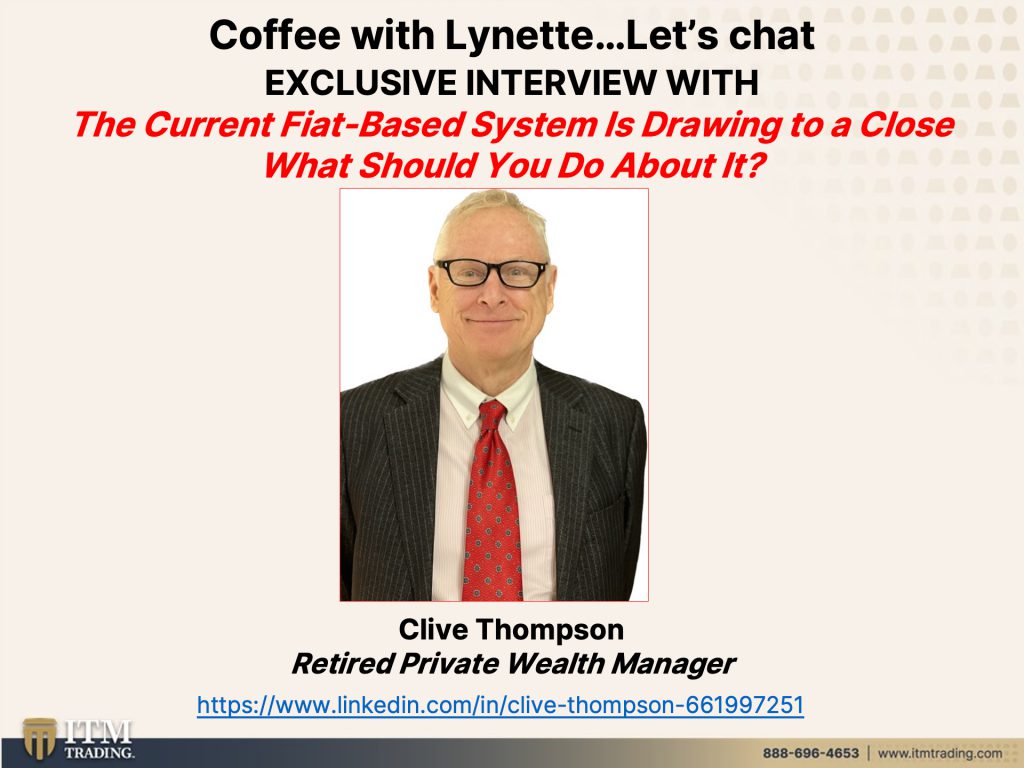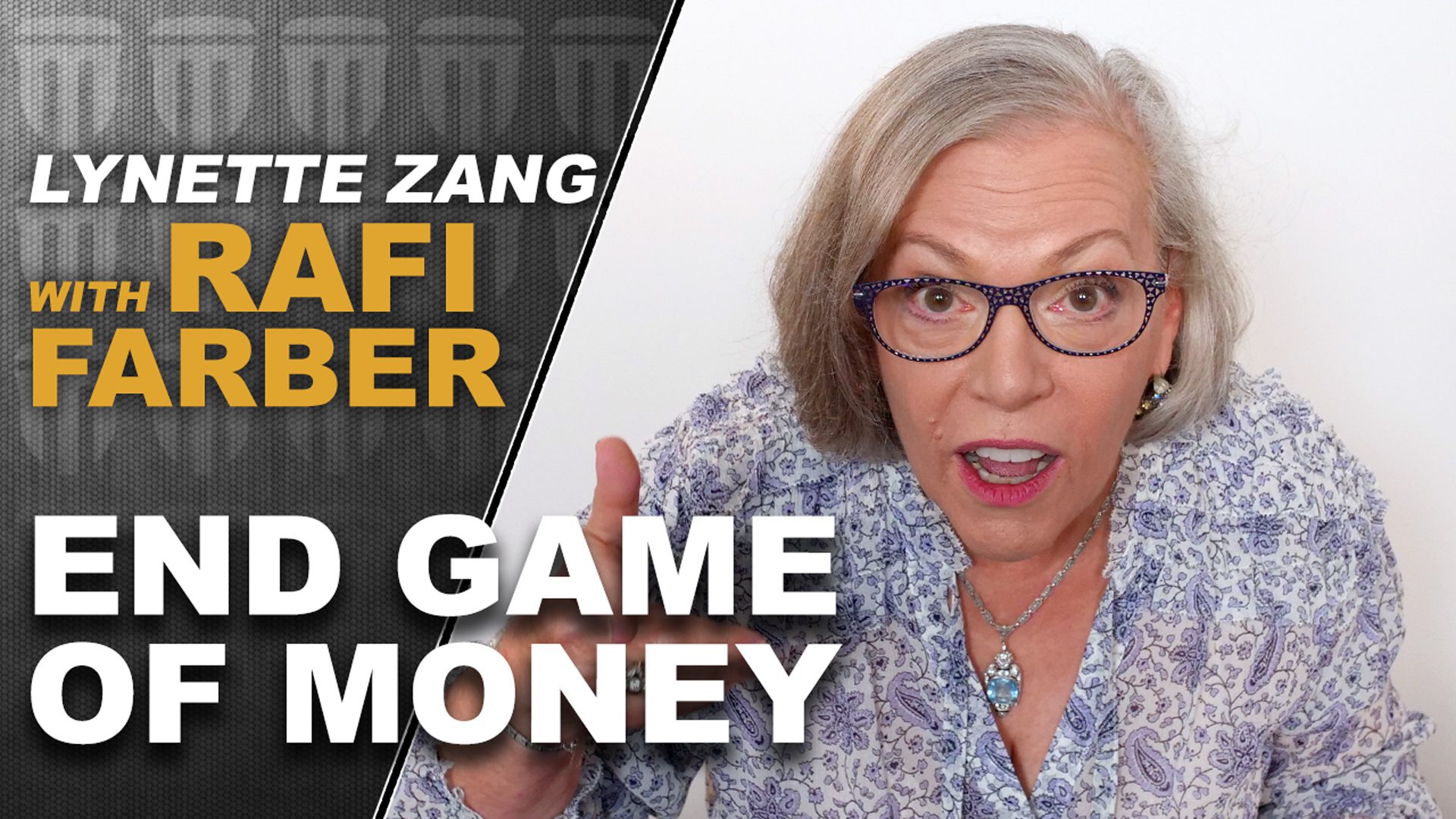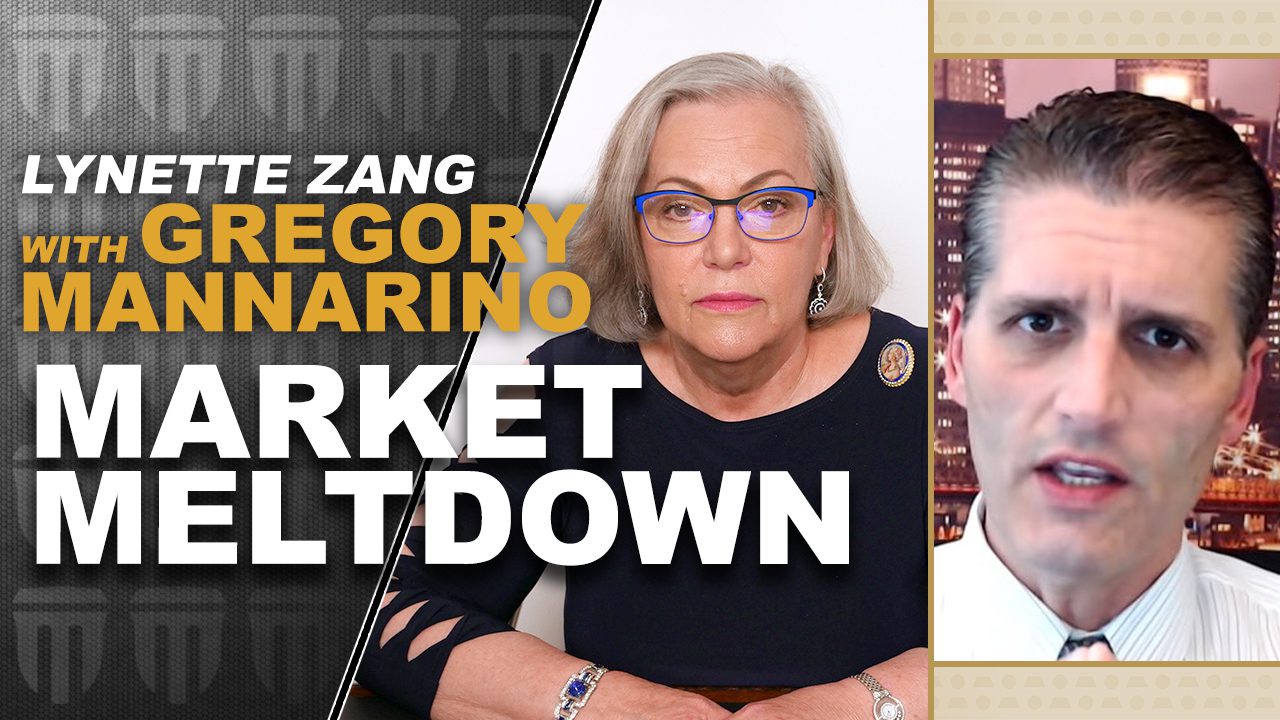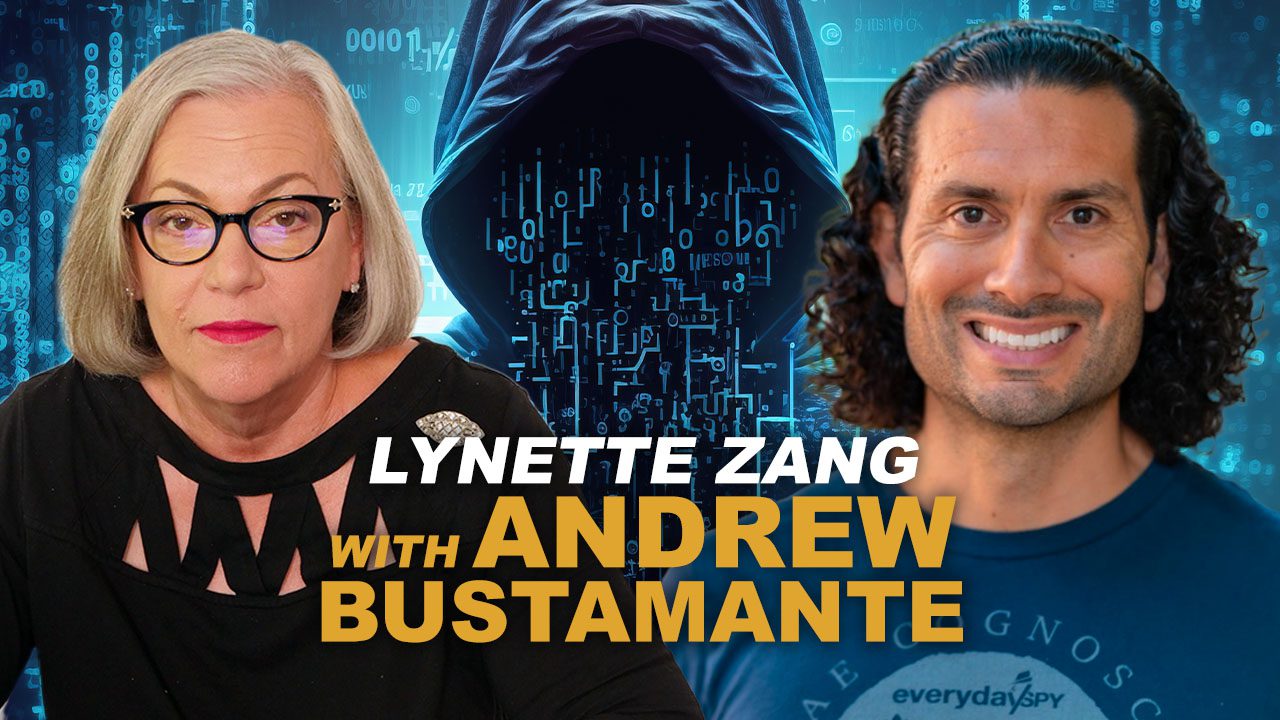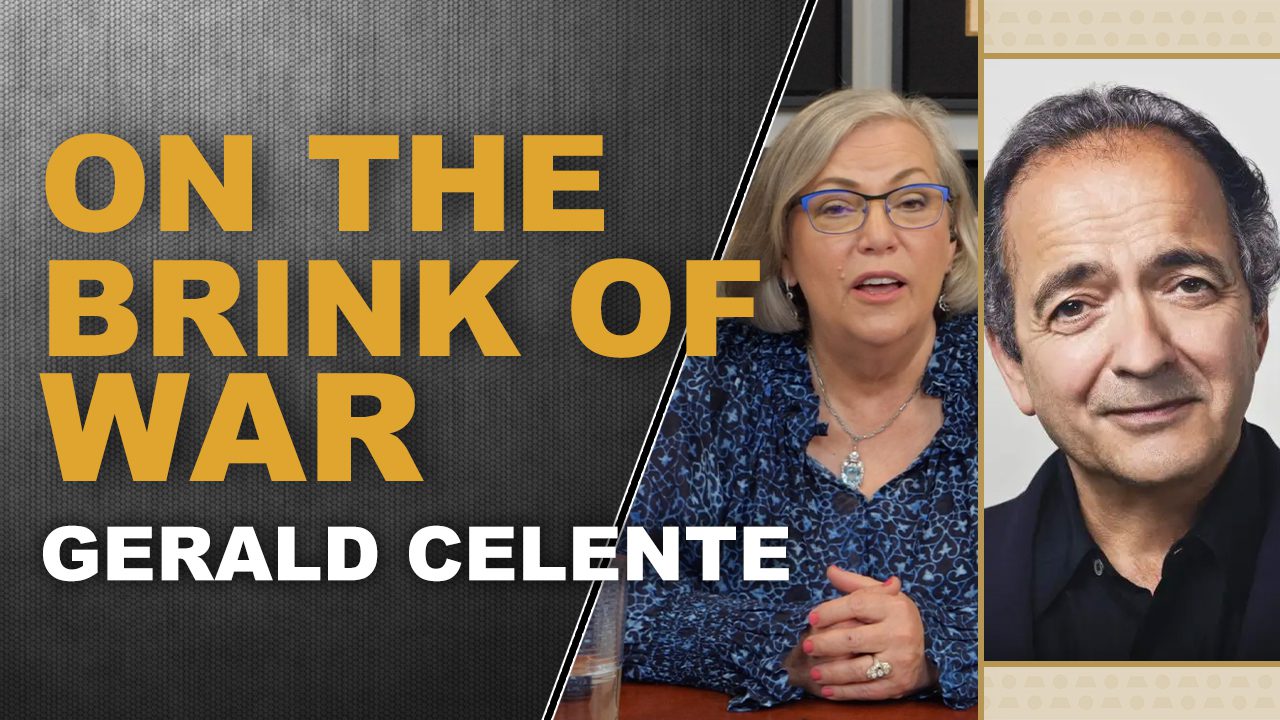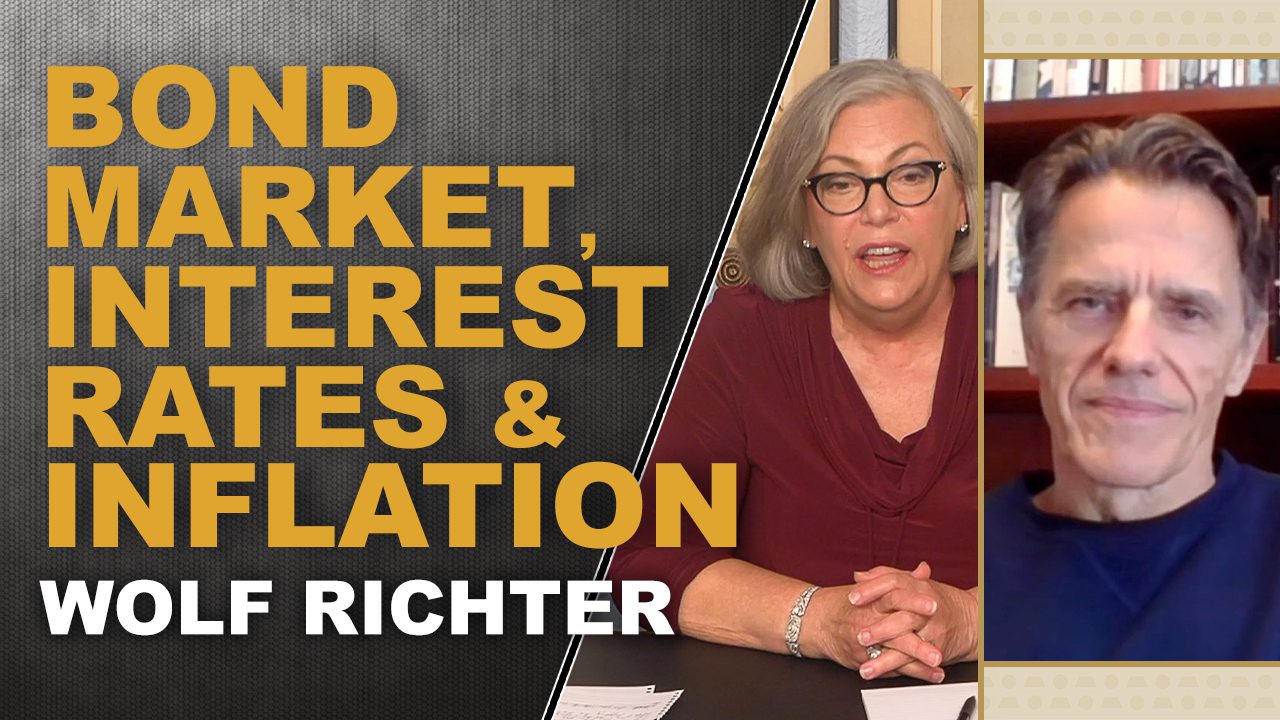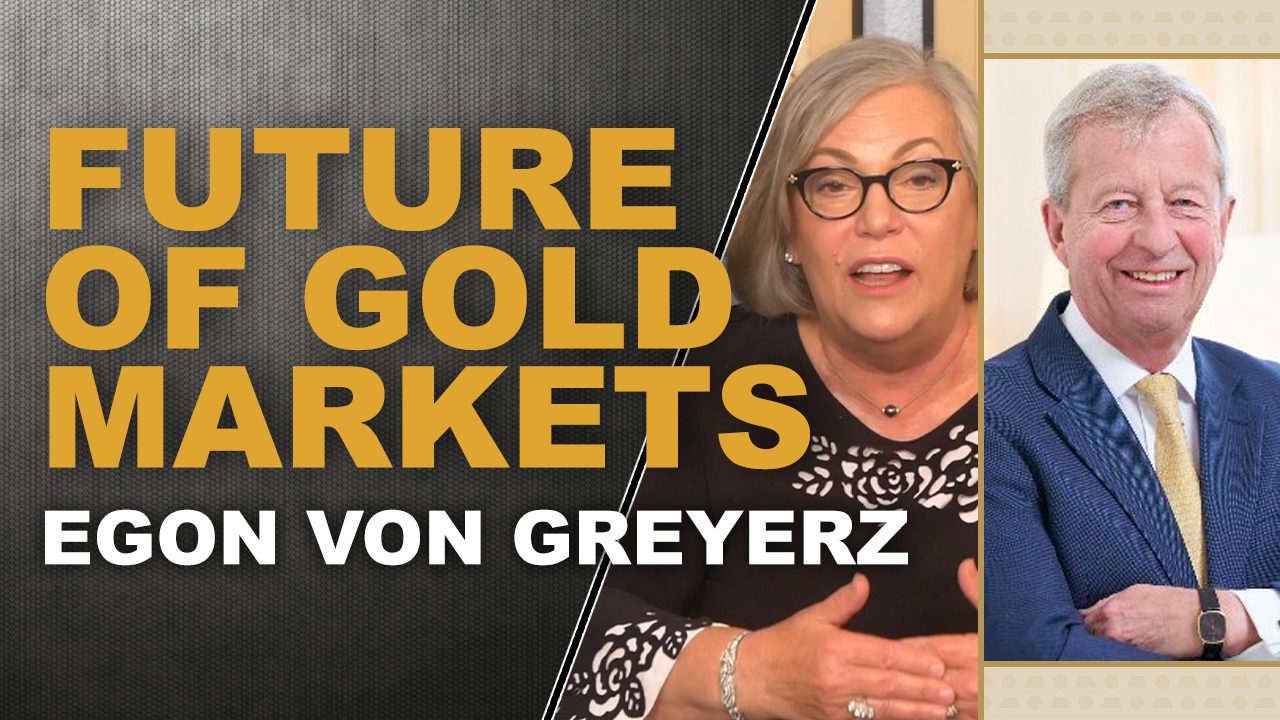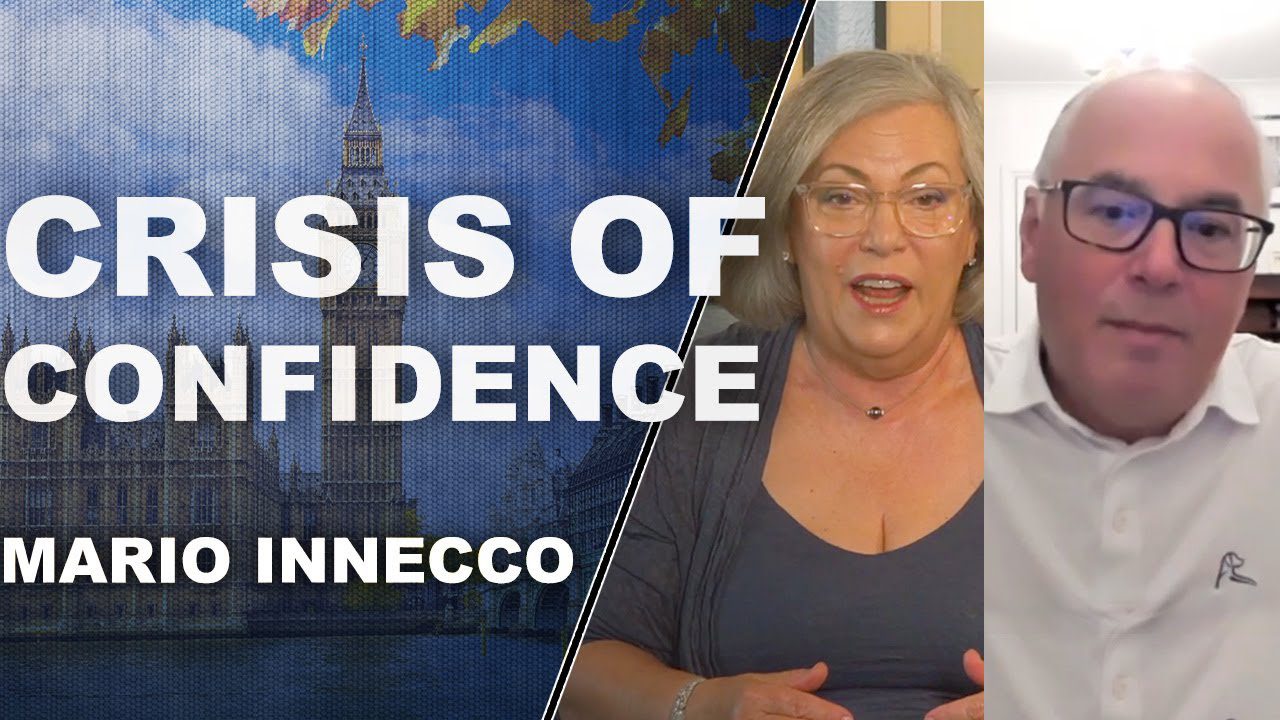CBDC’s and the End of Fiat Currency With Clive Thompson
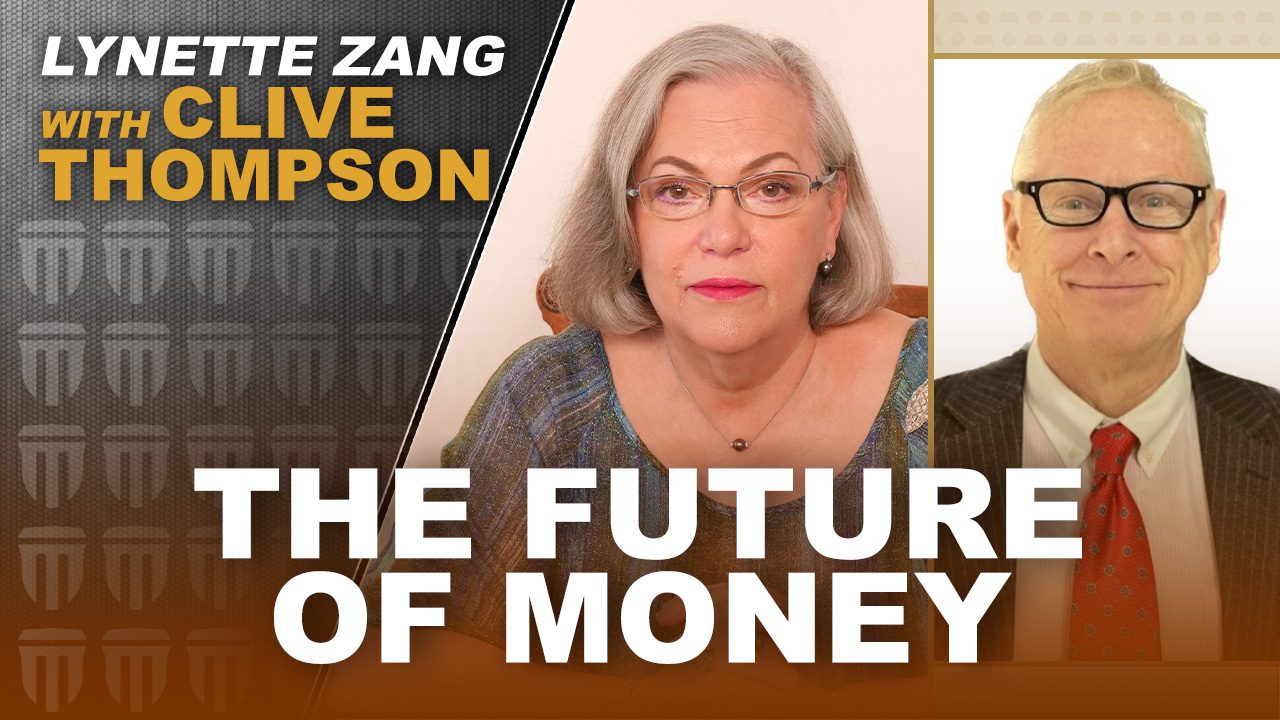
Have you ever wondered what the future of money looks like? Join Lynette Zang, Chief Market Analyst at ITM Trading, in this special edition of Coffee with Lynette as she interviews Clive Thompson, a retired wealth management industry veteran who spent 47 years advising wealthy families on preserving and growing their financial wealth. Clive shares his insights on Britain’s Central Bank Digital Currency (CBDC), why central banks like India and China are buying gold and what it means for the future of the current fiat-based financial system. If you’re curious about the new era of digital currency and how it will affect your financial future, don’t miss this fascinating conversation.
CHAPTERS:
0:00 Clive Thompson
2:48 Brit Coin
11:22 Breaking Through the Lower Zero Bound
17:00 Control of Inflation
20:48 Spot Gold
28:28 Nigeria’s CBDC’s
33:38 Purchasing Power of Gold
39:18 Protecting Your Wealth
TRANSCRIPT FROM VIDEO:
Clive Thompson (00:00):
We’re seeing central banks like India, China and others buying a lot of gold at the moment. the reason they’re, they’re doing that is because if something breaks in the financial system of the world as it is, it’ll be time for a new global monetary system. And those who have the most gold will get a seat at the table and possibly call the shots.
Lynette Zang (00:28):
I’m Lynette Zang, Chief Market Analyst here at ITM Trading of full service physical gold and silver dealer. Today on this special edition of Coffee with Lynette, I have a wonderful guest, Clive Thompson. Now he is from Switzerland and he’s now retired, but he worked for 47 years in the wealth management industry. He spent this career in working for Swiss private banks, advising wealthy families on strategies for preserving and growing their financial wealth, as well as the related legal tax residents devolution aspects of wealth planning. Despite being retired for more than a year, Clive is actively keeping abreast of the financial market developments and discussing investments and asset deployment on a daily basis. He believes the current fiat based financial system is drawing to a close, and that’s what we’ll be talking about today. Clive, thank you so much for being here. You know, I like to start with the new guests and ask them, I mean, I know that you retired roughly a year ago, and a lot of people in your position would just kind of take it easy and relaxed, but you actually seem to have started a completely new chapter in your life. So can I ask you why you do all of these things that you do and spend your time with the market still?
Clive Thompson (02:16):
Well, I spent 47 years in wealth management and looking after, broadly speaking, the wealth of rich people. But like a doctor, when you retire, you carry on doing the same thing as you always did, but you do it for free. So, <laugh>, I’m still advising I hate to use the word advising, but let’s say talking with a lot of people, people I know and people I don’t know, and I don’t charge anybody for it. It’s a lot of fun. I enjoy it, keep my mind active, and I keep my eye on the markets and which way the world is going.
Lynette Zang (02:48):
Oh, so that must keep you really busy these days because there’s a lot going on, but also, you know, I saw an article that you talked about recently on the BRIT coin coming so great Britain’s CBDC. Can you elaborate on that and what you think that actually means and whether or not they’re gonna get adoption?
Clive Thompson (03:13):
So, Britain is quite advanced in terms of bringing in the Central bank digital currency, otherwise known as the CBDC where they’ve got to, they’re passing the financial services bill 2023. It’s just at the committee stage at the moment going through the House of Lords, and then it will get the Royal Ascent and that will give the treasury the power to make various rules related to digital currencies, specifically the CBDC. We also have a paper from the Bank of England which it’s several hundred pages long. It’s more than a hundred pages long in which they describe the CBDC and how it’s gonna operate and all the things we go into it. What, obviously it’s a consultation paper, so it’s not finalized yet, and they do say no decision has yet been made, but I think it’s clear, yeah, it will happen. And if you look at the job postings on LinkedIn for the treasury and for the Bank of England, you’ll find that both of them have various job openings for people who can be policy consultants and so forth on the CBDC. So there is no doubt it’s coming. And as the paper describes it, the proposal is there’ll be a lot of checks and balances in there. They’re gonna keep cash as we know it going. So they say until nobody wants the cash they are going to have secrecy rules. So the government cannot know who has got what or what they’re doing with it. But they won’t be totally secret cause that the monetary of what you will do will be outsourced to financial institutions. So it won’t be the Bank of England monitoring you nor the government, but they will outsource that monitoring for money laundering and anti-crime reasons. So you will be monitored it just won’t be by the government as it stands if the legis, if it well, if the, if it comes to pass the way it’s proposed by the consultation paper.
Lynette Zang (05:23):
Well, one of the things I thought was really interesting is, you know, that you were talking about in there, I mean, first of all, no, they’re not gonna do away with cash because then people are going to know that something is different and they don’t really want that. But you stated that they created a whole new currency and that that could run alongside everything else that they’re already doing.
Clive Thompson (05:51):
So there is, there is no doubt the CBDC is not the same currency as the British pan. It will be one-to-one and freely convertible from your bank deposit to the central bank currency and back again. But they are, to all intents and purposes, two different things, which will look like the same thing, just like dollars and cents are effectively the same thing. The important point about it being two different things is that at any moment in time, they can actually make them different things, which are not one-to-one, right? So if the economy is starting to get into trouble because everybody’s bringing their pounds home and trying to do something bad with the economy, they can simply bottleneck how much you can move into CBD cs and run the economy on the CBDC without worrying about the old legacy currency, which will now be starting to wither away because the, the minute the bottleneck and say you can’t freely put money in and out of cbd cs, which is what you’ll be spending in the shops people are gonna panic a little bit and wanna do it. And then of course they’ll close the door and you’ll find that the old currency starts to be valued at a discount to the new currency, the new CBDC. Now, there’s no proposal that that will happen by the government or the treasury or the Bank of England at the moment, but it will make it a lot easier for us to have a currency reset. I e there’s a huge selloff in the government bond market. Britain can’t finance itself, for example, and they have to shut the door and start again with a new currency. Now the, if that was to happen, and you know, it’s only a question of time before something like this does happen, right? Somewhere. and if it happens somewhere, it’ll be in a western, in a large western economy, it’ll be replicated very, very quickly around the world. It’ll, it’ll, people will panic everywhere in the world. So if, if it happens, the benefit to the UK government would be that they now have a new currency on which the economy is running and an old currency on which the economy is not running. And therefore the old government debt will be in a currency which they don’t have to worry about. So they’ll be able to print it out of existence to pay off the national, well, they won’t pay off the national debt, they’ll just keep printing it and printing and printing until everyone realize it’s worth absolutely nothing. And people the government, China and whoever else has got the government debt says, well, they’ll point in paying us anything cause you’re paying us with a confetti.
Lynette Zang (08:42):
Right? So if you’re, if it’s, it’s that’s a really interesting concept and it’s, it kind of goes along with how you catch a wild boar by just closing the, closing all the avenues of escape by getting them comfortable in the circumstance. But so you think that they would run parallel, but you would not be able to use the old pounds to purchase as a tool of barter. They would just sort of be an accounting tool?
Clive Thompson (09:11):
Well when the CBDC comes under the plans as proposed, you’ll be able to use your cash in your wallet, your cash in your bank or the CBDC, right? You’ll have basically three choices. So you’ll use your credit card, which is your bank’s money, you’ll use your cash in your bank, in your pocket, your pound, well, they don’t have five patents anymore, the five pens. Or you’ll be using the CBDC wallet, which will probably be on your phone like that mm-hmm. <Affirmative>. so, and the shopkeeper won’t initially care, but over time I suspect that cash will gradually fall into disuse. Now I’m not saying that people want that, but it kind of happened already in Sweden, so Right. It’s kind of the direction of travel when you bring digital things in. So you’ll now be cha faced with a choice of user your bank’s money or your CBDC’s. It’ll be very easy to dictate that at a certain point. Everything has to be in CBDC’s for paying your taxes, earning your salary, paying your rent, buying things in the shop or whatever. And probably all contracts will have to become in the, in the new CBDC Now that’s not the plan they have at the moment, but it, it will be possible because we’ll effectively have two things.
Lynette Zang (10:44):
Well, actually the
Clive Thompson (10:46):
It’s like,
Lynette Zang (10:47):
Oh, I’m sorry, go ahead.
Clive Thompson (10:50):
Well, I was gonna say, it’s, it’s vaguely similar to what Britain did in 1971, or America did in 19 33, 3 in 1971, we had 240 pennies to the pound, and then it suddenly became a hundred pennies to the pound. And in 19 33 I think it was in the usa we had well, an an ounce of gold was worth $20 and then a year later it was worth $35.
Lynette Zang (11:16):
Right.
Clive Thompson (11:16):
In other words, it it was, it was the same thing up until 1933. And then it was two different things.
Lynette Zang (11:22):
Yeah. It, I mean, it’s amazing how you get people to just kind of volunteer it. And it, it brings me back to a piece of that the IMF did in 2018 or 15 rather, breaking below the lower zero bound, where they talked about wanting distance between their policy and how it is introduced to the public and using the retail public to introduce it to the general public. So they would put a, a fee on which we already have, frankly, on cash deposits and cash withdrawals. And then if you go to the store, the store says, okay, if you use, if you use this, it’ll cost this much. If you use cash, it’ll cost this much. So in that way, they get people to volunteer going cashless without them even really realizing that they’re giving up all of their choices. And then once they do, I mean, I think it’s an interesting concept because usually hyperinflation is what takes care of that huge amount of debt. Had, have you been able to find anywhere what they’re going to use to justify the creation of those CBDC’s? Cause that’s been a bit elusive.
Clive Thompson (12:47):
Well, the plan is that they will be freely convertible from one to the other. So it’ll be just like the old British pound. In other words, in in a, in God we trust, or whatever you like. And obviously it’s backed by absolutely nothing at all. But as long as people have confidence that the currency has value, that’ll be fine. But the problem will arise if we suddenly have a crisis such as the one, the one we had, I think it was back in September in the uk where there was a, a mad panic in the government bond market and everyone was it was basically forced sales and mm-hmm. <Affirmative>, it could have spiraled out of control if the Bank of England hadn’t stepped in. But this could come from anywhere. Look, look how many times in history we’ve seen crises occur just with the UK alone.
Clive Thompson (13:38):
You know, there was, back in the 19 nineties before the Euro came into existence Britain was struggling to keep the British pound within the the band. It had to keep it within a certain band. And it, the more it struggled, the more it put up interest rates until George Sos took a poke at the pound and said, I think I’ve gonna short this with a 20 billion bet or 10 billion bet against the pound. And they put up the interest rates to try and screw ’em over, but it didn’t work. And the pound fell outta the e r m and the pound collapsed something at 20% against the dollar and against the deutschemark in one day. And of course they could then put the interest rates back down, but the Britain permanent, the pound permanently re remained at a lower level after that.
Lynette Zang (14:24):
And how did that impact the population?
Clive Thompson (14:30):
Well, everything costs more. It goes without saying, when your currency falls against another currency, it means your imported goods cost more, and therefore people start to demand pay rises because the inflation goes up. Mm-Hmm. <affirmative> and now we’re in a very, we we’re in a very funny world because the level of printing of money has been off the radar screen in the last 20, 30 years. Yes. it’s literally gone through the roof. And by historical standards that would’ve said prices going into hyperinflation, we haven’t had hyperinflation. And the reason for that is we’ve got one of these miracles where they can print the money at one end, it flows through the system stimulating the economy, which has been very good. But when it comes out at the other end, someone, bill Gates Steve Jobs the governor of China puts it in their pocket and keeps it mm-hmm. <Affirmative>
Clive Thompson (15:26):
And that’s great as long as they keep it and don’t spend it. But the situation will not be so good if they start to want to spend that money. And wealthy individuals now are starting to say, I don’t want to keep all my wealth in cash. I mean, they never did. But they don’t want quite as much as they kept in cash. And that’s why the price of Rev and Goffs are going to all time records and just about anything rare and unusual, which is hard to lay your hands on, is hitting new records at every auction sale. That because people are trying to deploy their money. Right. And we only have to see what the government of China’s trying to do. The government of China’s trying to unload its dollars. So they’re going around the world trying to buy tin mines in Indonesia. They’re buying railways in Africa, they’re buying pharmaceutical companies in Switzerland. They can’t buy anything in America cause the, they tried to buy anything in America, they’re told, oh, sorry, that’s within 150 miles or what our military basis, you can’t buy it. But basically the, you know, they’re, they’re trying to get shot of as many dollars as they can, but the trouble is it’s coming in at one, coming in at one end, very, very fast. And they try to spend it and it’s not easy to spend that much money quickly.
Lynette Zang (16:41):
That’s true. And since you brought up inflation, let’s kind of go there because inflation, rapid inflation is kind of an alert system for the general public to say, oh, something’s going on here. If they can keep it at that 2%, then they’re still getting what they want just at a slower pace. But this rapid inflation now, what do you think we’re, we’re hearing soft landing, we’re hearing maybe this time will avoid a recession even at the same time that we have the global current yield curve inversion, not just in the different countries. And what is your feeling? Do you think that they’re really getting control of inflation or what, just your thoughts on that please.
Clive Thompson (17:34):
So the CPI index is dominated by a number of things. And, and one of them is or, or in, in the background are commodity prices. Now, commodity prices shot up a lot last year after the invasion by Russia of Ukraine. Mm-Hmm. <Affirmative> and all those commodity prices are way, way down from the peaks we saw in May, June, July last year, which means those very high numbers are going to drop outta the inflation index by about the middle of this year toward, or towards the end of this year. Okay. So it’s entirely conceivable that that high inflation we saw in the USA in in Europe will go back down, at least at the headline number when we’re looking at, at it from a year to year basis. Mm-Hmm. <Affirmative> having said that, I don’t think inflation has gone away because inflation isn’t really the rise in consumer prices.
Clive Thompson (18:33):
Inflation is the inflation of the money supply or the total fiat mass as defined by the totality of government debt and money in circulation. Right. so that’s at quite a high level. I haven’t got the latest numbers, but I think about a year ago it was running at about 13 to 15% a year and had been for many years which obviously is way higher than the consumer price index was running at the time. Right. I dunno where it is as of today. So, but it has been quite high. So that means if you are a wealthy person and you have money in the bank and you’re earning less than that 13 to 15 bet percent that they’re creating the money at, you are going backwards.
Lynette Zang (19:15):
Right?
Clive Thompson (19:16):
So wealthy people are seeing their, whilst their cash ballots might look like it’s going up because they’re earning 4% interest or whatever they’re getting relative, their relative share of all the money and cash and government bonds, which are circulation is going down, it’s, they’re going backwards. So they’re getting poorer relatively compared with the next rich guy who hasn’t put his money into government bonds or hasn’t put money into cash.
Lynette Zang (19:43):
Well, that’s why you’re going into hard assets. Right. That’s why they’re putting their money in their heart hard assets that the dynastic wealth piece. But do you think? No, go ahead please.
Clive Thompson (19:57):
Sorry. Thank you. I didn’t meant to interrupt. We’re seeing central banks like India, China and others buying a lot of gold at the moment. Yes. the reason they’re, they’re doing that is because if something breaks in the financial system of the world as it is, it’ll be time for a new global monetary system. And those who have the most gold will get a seat at the table and possibly call the shots.
Lynette Zang (20:28):
I get, a lot of people ask me when they, when they do those overnight resets where they revalue the currency against gold and then gold starts to express to its true value. I mean, you, you’ve been in the belly of the beast a long time managing for very wealthy clients. Do you believe what you see on Wall Street, I mean like, spot spot, gold spot, silver spot, anything? Frankly?
Clive Thompson (20:57):
I’ve been following the price of gold since I was well, I won’t say I was following the price cause I was not possible to follow the price of gold. But since I was a child, I, I first acquired my first piece of gold, which was a sovereign from my granddad. I’ll tell you a little story. When I was about six years old, my granddad put in front of me a one pound note at a bar of chocolate and asked me in front of his friends, which one I’d like. Now being a six year old, I took the bar of chocolate not knowing really what a pound net was. Now what I obviously didn’t realize at the time that a bar of chocolate costs six months, that’s six old pence, not the new pence. And that meant you could buy 40 bars of chocolate with one pound.
Clive Thompson (21:45):
Now you do realize today it’d be kind of difficult to buy a bar of chocolate with a pound. You’d need more than that to buy even one. But I took the wrong, I took the wrong solution. I took the bar of chocolate and everybody laughed and I learned my lesson. So when I came back to my granddad’s a year later, he wanted to play the same trick on me. And he put in front of me the pan out the bar of chocolate and a one pound gold sovereign from the 1920s I believe it was and asked me which one I liked. Well, I knew that bank notes were worth more than coins, but I’d had no idea what a gold sovereign was <laugh>. So, and I knew bank note the pound note was worth more than a borrow of chocolate by now. Cause I’d learned from my previous experience, I took the pan note and my grandfather found that terribly amusing.
Clive Thompson (22:35):
And his friends who were around there didn’t understand what was so funny because they didn’t know what a gold sovereign was either. They’d never seen one. My grandfather actually worked for HMRC, the government tax authorities. So he’d seen a lot of different types of assets. And he also had a very tiny portfolio of some shares and things. So he was a little bit unusual compared with the man in street who wouldn’t own gold, wouldn’t own shares but he did have this gold sovereign they, they, they weren’t making them anymore by then. They’d stopped making them I dunno, back in the 1920s cause they were trying to run the economy on silver money and bank notes. But anyway, he had one. But a few years later he gave me that sovereign, and perhaps I was 14 years old and he said, Clive, keep this forever. And so I still have it today. It’s tuck to away my safe somewhere in my my bank. I never sold it. But the, the, in terms of inflation, I did look it up recently, well, I looked up twice back in 1975. I went along to one of the gold bullion dealers in London when I started work. It’s called Shops Pixley and asked them what they’d give for it. I think they said they’d gimme 10 pounds for it and they, but they had another one if I wanted to buy it. And it was gonna cost me 25 pounds. I don’t remember this
Lynette Zang (23:55):
Person, <laugh>. That’s a pretty big spread.
Clive Thompson (23:57):
Quite, yeah. Well, we must, we must remember Bri was on exchange controls <laugh> and I’m not even sure it’s legal to own sovereigns back then, but Oh, okay. It was on exchange controls. And, and so we had what’s called the dollar premium, which meant there were two prices for the pound. There was a price overseas and there was a price in the UK completely different, which meant that whenever you had a tangible asset, like a piece of gold, the prices of buying and sell had to be hugely apart. Otherwise they’d be a lot smuggling across the border to, to capture it.
Lynette Zang (24:34):
I see. Okay. That’s, I didn’t know that. Thank you. Yeah, that’s interesting. Very interesting.
Clive Thompson (24:41):
So my, you know, my, my mother back then when I was a child, would sometimes go to work for the United Nations. She was a, what they call a St typist. And it made sense to, when she got her pay to convert it into British pans outside the UK, which was obviously illegal, but we’re talking about 60 years ago here and mail it to her mother saying dear mom, here’s the five pounds I owe you. Because that meant the five pounds would’ve cost her a lot less in Switzerland than it would’ve cost her in UK if she changed her Swiss Frans in the UK at the official exchange rate.
Lynette Zang (25:29):
Interesting.
Clive Thompson (25:29):
So, you know, we had a a, a dual currency system back then mm-hmm. <Affirmative> just as kind of existed in, in the USA after you, you weren’t allowed to own any gold. Mm-Hmm. <affirmative>, you couldn’t, obviously you couldn’t actually buy the gold, but the price was completely different from the official rate of 20 pound, $20 as it was supposed to have been since the beginning of time.
Lynette Zang (25:51):
Right. Well, I think that’s interesting. So, so you still have that gold sovereign today. I actually have sovereigns. I like them. My personal strategy, I use them for property taxes. That’s, that’s the intention. I don’t use them right now, but that’s what I’m accumulating them for. So that hadn’t.
Clive Thompson (26:12):
They say it’s the most popular coin in the world. James Bond always used to carry sovereigns with him wherever he went in the world. Cause everywhere in the world people would take them and they were recognized.
Lynette Zang (26:23):
Absolutely. Well, that’s the thing about gold and silver coins is, you know, this is, this is, what date is this? This happens to be a 1914, but that’s the thing. You can take it anywhere in the world and it has that same level of purchasing power value, which is why it’s so critical. And especially, I mean, we’re watching things fall apart. I had a similar experience when, not, not quite like that, but I also had an experience with gold when I was 10. So that would’ve been 1964 when it was illegal in this country to have more than five ounces. But had an antique dealer uncle who he’d go into wealthy households and they would have these gold coins and he probably bought ’em at whatever the official rate was at that time. And he had two huge floor safes. And I remember him telling my parents if anything happened to Aunt Birdie, his wife, that she would be well taken care of for the rest of her life because of what’s in here. And so, and you know, when you’re young like that, you don’t really understand the lesson until you have some age on you and then you can look back and go, oh, I’m so grateful that I had that because similar to what you were talking about, I have a $1 gold coin. So back in 1900 you had a $1 gold coin, you had a $1 bill, you had a silver dollar, you’d buy 11 loves of bread. Recently I did a thing and so I got the price of the current $1 gold coin, what the current price was, and it’d buy me like 133 loaves of bread or something ridiculous like that. But you know, what is that $1 bill buy you in terms of loaves of bread, you know, maybe a third of a loaf if you’re lucky. Something like that. So I think you’ve been groomed for this moment in time as well to have had that experience that you’re working on sharing. And we’re looking at, I personally think this is gonna be a global reset because we’re all intertwined and we see what’s happening in Lebanon. We see what’s happening in Nigeria. And Nigeria I think is particularly interesting in that they weren’t getting good adoption of their CBDC. So by demonetizing all the large bills, which aren’t very large anyway, are they trying to force that adoption? Or what, what is your feeling on what you’re seeing in these emerging markets?
Clive Thompson (29:02):
Well, we’re obviously in places like Lebanon and we can see they’re burning the banks yes. In rage because the banks won’t give them their money. People had deposited their money in the Lebanese banks and well, they were earning a pretty high interest rate until they couldn’t give it back to you. <Laugh> you know, I think you could get 14% on US dollars in a Lebanese bank two years ago. But now they won’t give it back. They don’t have the money. The, the population thinks the government is corrupt. The population, the, the government has been taking bribes and God knows what else. Whether that’s true or not, I have no idea, but basically the population are starving. They can’t get money outta the banks. They can’t buy oil to even cook their food. It’s, it’s a problem. And people are saying, well, perhaps it won’t happen here. But it could happen anywhere if there is a certain level of distrust in the in, in the banks or distrust in the government or distrust in the currency, or if mm-hmm. <Affirmative> we have another banking crisis. I mean, we mustn’t forget that commercial banks, which is the vast majority of them, are taking your money and my money and lending it to somebody that you personally, and I personally wouldn’t be willing to lend it to. For example, a spotty teenager who wants to buy an Xbox or maybe his mom and dad. But either way it wouldn’t be what I’d be lending money for. I, I wouldn’t be handing out, letting people run up huge bills on their credit cards knowing that I could never get it back unless they can borrow more. So the day of reckoning from time to time does come individually and banks, and sometimes it comes in all the banks at the same time. And when that happens you know, you might worry if you kept too much money in the bank and you haven’t got other things to spend mm-hmm.
Lynette Zang (30:49):
<Affirmative>. So what are you doing to avoid that?
Clive Thompson (30:55):
The, the magic trick is to diversify into as many assets as possible, which are tangible. Suddenly ti is everything. And I can’t tell you if today is a better day to buy gold or stocks. It might be that gold will go up to two and a half thousand next week and stocks will drop to 20% next week. That’s a totally possible. Or it could go the other way. And you don’t know. I dunno. So that’s, this is why I don’t put all the eggs in any one basket. Right. I I think it makes sense to be, to hedge your bets by having a bit of everything. Now those who feel very strongly about a certain type of asset, maybe the golden silver can have more of it. And where I sit, I at the moment, I’m of the view that I should be increasing my exposure to gold relative to other things. So yes, but it doesn’t mean to say I’m on the route to having half my assets in gold, or even a quarter of assets of gold. It’s you have to have a, the amount which is right for each individual, and the amount which is right for each individual will vary according to their own situation. Some people have very little money and it probably doesn’t make sense to have any gold at all. Other people perhaps have got a few thousand in the bank and they could probably afford silver coins rather than gold. And, and so it can go on and a, a man who’s got many, many millions, perhaps would like 10 or 20% of his assets in gold if he feels that the system is about to reset. Certainly the central banks are taking that view by trying to have as much gold as they can, at least some of the central banks. But then maybe they don’t want stocks. The one one central bank, which does have stocks is the Swiss Central Bank. Yes. But for the in general, they, they like, but they’ll never forget the Swiss Central bank is, has an awful lot of gold relative to other countries and always has had a lot of gold. So perhaps that’s the reason they went into stocks. Whereas some of the other countries relative to their GDP didn’t have, have quite as much gold so there on a mission to build up their gold reserves.
Lynette Zang (33:05):
Well, I think, I think when we look at, cause certainly Japan has been quite active through different arms. They can call it all different things, but I think it’s more about supporting the markets because that’s what people look at. People don’t really look at the gold. And do you think that gold is fairly valued where it is right now? Do you think the stock market, can I just fully values it? Yeah.
Clive Thompson (33:31):
Let me, let me show you a chart of something. If I may. Sure. so this is something I produced a few weeks ago. It’s the is it, it is not back to front. Can you see it the right way?
Lynette Zang (33:45):
I, yes, I can see it the right way.
Clive Thompson (33:48):
So just to, this is from, it’s in British pounds, but the same principle apply in dollars and other currencies. Mm-Hmm. <Affirmative>, it’s from, it’s the, it’s how much gold you could have bought from 1971 to today with 10,000 pounds mm-hmm. <Affirmative>. So in 1971, you could have bought 635 ounce answers of gold with your 10,000 pounds British pounds. Some 29 years later by 2000 it shows here you could have bought 63 and a half ounces, one 10th as much
Lynette Zang (34:28):
Mm-Hmm.
Clive Thompson (34:28):
After 20 years. Now we are 23 years later. And you could buy, it says 6.5 ounces of gold. It’s actually now 6.35 ounces. It’s 100th of the amount of gold you could have bought with 10,000 pounds back in 1971. So the British pound has lost 99% of its buying value in pound terms. Yep. And if we look at the chart in American dollars, you’ll see the situation. It’s not exactly the same, but it is more or less it’s close in the same direction. It is it’s on the way. You know, the currencies have lost most of their buying power. They’re on the way to zero. And we are probably entering the final phase now because government debt as a percentage of GDP has reached very high levels. It’s 130% of the usa that is way beyond the level, which was thought sustainable by the USA itself back of 70%. It’s way beyond the level set by in, in the matric treaty for European countries, or 60%, of course all European countries are way beyond 60% of GDP now. And that level of debt of the set, the government relative to GDP is getting larger. Mm-Hmm. <Affirmative>. So it means that the debt is not rising with inflation if it’s rising faster than inflation. Right. And it also means that now we are going to phase of higher interest rates. The servicing costs are going to start increasing. Now it will take a decade for those service costs to spiral out of control because a lot of the government debt is issued for more than 10 years. Mm-Hmm. <affirmative>, oh, well issued for 1, 2, 3, 4, 5, 6, 7, 8, 9 10 all the way through to 50 years in some cases. But over the next decade, if interest rates were to stay where they are, the servicing costs of the national debt will just become unsurvivable. It’ll take all of the taxes and beyond and they’ll have no choice but to not only borrow, to pay, repay the principle, they’ll have to borrow to repay the interest, which is happening to some extent already. Oh, yes. Yes. But it will just become wilder or wilder. So the, I think the, for currencies in western governments, western countries we’re on our last legs. And I, you know, obviously the plan is to keep kicking the can down the road, keep inflating away and hoping that nothing breaks. But clearly the danger is that something breaks. And it has broken in many less developed countries in some cases multiple times like Brazil for example. But we, we only have to look at how many zeros they were had on some of the bank notes in Europe before we got the Euro. You know, I remember when you went on holiday in Italy, it was very hard to know if you are, if you’re getting ripped off or if you’re dealing with a 10 million note or, or 1 million note or or a hundred thousand note. You couldn’t really tell the difference. And of course, gas station attendance loved it when a foreigner who was unfamiliar with the notes turned up because they, you know, you, you didn’t know what you’d handed them and you change was never write.
Lynette Zang (37:39):
Right. Yeah, I’ve experienced that. But, you know I’m not a hundred percent convinced that they’re really trying to kick the can down the road as far as, you know, they’re basically out of tools. They’re trying to raise the rates so they can lower them. Again, that’s gonna create a problem central. Pardon?
Clive Thompson (38:03):
Sorry, I just bring my picture back in
Lynette Zang (38:04):
<Laugh>. Oh, okay. Yeah, I mean, you know, central banks are out of they’re out of tools because the key tool are interest rates and, you know, so they’ve broken that trend line of downward sloping interest rates. Now we’re going up, something is breaking and I think they know that. And as you pointed out, so aptly, I don’t care whether you’re in Great Britain or you’re in the USA or you’re anywhere else in the world, the fiat money system, the currency has no, no purchasing power left. It only has viability because of public confidence. Right. So we’re still willing to work for it and use it as our tool of, of barter. But when that shifts, that’s when I think we’ll see the hyperinflation. But beyond that, I really think that they, that central bankers know that this is the end of this road. So maybe what they’re attempting is a planned demolition rather than a kicking the can down the road. I think the last kick was started in 2008. I think that’s when the system, I’m convinced that’s when the system died. So, but
Clive Thompson (39:17):
I, I think you I certainly think there are some people who are in control of our financial system who actually have made up their minds to go in that direction. Whether they’ll be able to do it without being forced to stop by the respective governments who dunno, it’s about to happen. I think we’ll see. But I you’ve definitely got a point that there could be a plan afoot to restart the system by destroying it.
Lynette Zang (39:45):
Right. So, you know, for me, financial shields are made of metals. I’m, everybody knows I’m way more than 50%. And I do agree with you, you know, I definitely am a tangible gal and have no problem with holding my wealth in something that’s real.
Clive Thompson (40:04):
So when people buying silver or gold I would say you need to buy smart. That means dealing with reputable dealers mm-hmm. <Affirmative> and or if you’re going make sure you’re only buying for a price at which you think you could sell it for with a dealer, you’ll pay more. And that’s justified because you have the reassurance that you’re dealing with a reputable company and not, not gonna sell you a fake, which is Yeah, exactly. Harder to know when you’re dealing peer-to-peer.
Lynette Zang (40:32):
I think there’s enough of us around. And I definitely can echo you wanna work with somebody not just that’s reputable but also is going to be there. Right? You need to know that they’re gonna be there. So when you’re buying, you’re paying a reasonable price and when you’re liquidating, you’re liquidating at a reasonable price. But beyond that, because it isn’t all about the current fiat price, since we know the truth about the fiat currency, it’s also about having a plan. Because clearly those in power have a plan. And I think everybody needs to have a plan for how they’re going to walk through this. The other area that I’m personally diversified in is food, water, energy, security, as well as barterability. And, and anything physical is barterable. Any talent you have is barterable wealth preservation, creating community, which is what this is about for me and shelter.
Lynette Zang (41:34):
Cause these are the things that no matter what happens, whether you’re right or whether you’re wrong, these are the things that we all need to sustain a reasonable standard of living. And whether this financial storm that is already upon us that we’ve already started to walk through. And this has been great fun and I really appreciate you coming cuz I know you’re in Switzerland. The time difference is a little bit challenging from time to time. But thank you so much for being here. Really appreciate it. And I hope all the viewers got as much out of this as I did. And until when next we meet, remember your financial shields are made of metal, not paper or promises or the ability to print
Clive Thompson (42:22):
<Laugh>. I gotta get one of those.
Lynette Zang (42:26):
We’ll get you one, we’ll get you one. Until next we meet. Please be safe out there. Bye-Bye.
Clive Thompson (42:34):
Bye bye.
Lynette Zang (42:35):
Thank you.
SOURCES:
